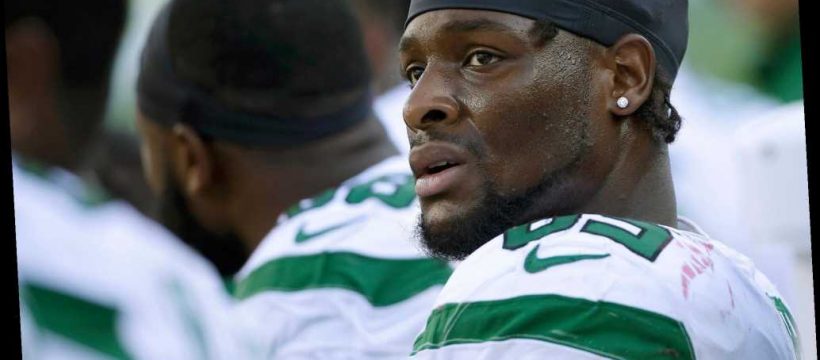Sam Darnold, who missed the past two games with mononucleosis, looks like he could be the starting quarterback on Sunday when the winless Jets travel to Philadelphia. If Darnold is medically cleared to play, that would be a huge upgrade over Luke Falk, who began the year as the third-string quarterback.
Yet, the harsh reality facing the 0-3 Jets is that it won’t matter who is under center on Sunday if Le’Veon Bell and the team’s rushing attack doesn’t have more of an impact than it has had.
Bell, after five dynamic years with the Steelers, signed a $52 million contract to join the Jets following a year-long holdout in Pittsburgh. He was expected to be a major weapon for offensive-minded coach Adam Gase, if he matched his production in Pittsburgh where he totaled 5,336 rushing yards and 2,660 receiving yards. That broke down to an average of 4.3 yards per carry and 42.9 yards receiving per game.
Though you figured there might be some drop-off coming to a new team and offensive system, Bell hasn’t been able to jump-start the offense on his own. He has just 163 yards rushing on the year, averaging 2.9 per carry with no touchdowns. A proven dual threat, he has 20 receptions for 121 yards and one touchdown. By comparison, his yards from scrimmage (284) ranks 24th in the AFC, and his average gain per play of 3.7 ranks 48th.
With Falk operating the offense at New England, Bell had just 35 yards rushing on 18 carries and four catches for 28 yards as the Jets gained just 105 yards of total offense. Falk was making his first career start, and his inexperience with blocking protections likely hurt the offense.
“I think we missed some opportunities and there are some things to learn from,” Falk said Wednesday. “I also think there are some positives and some things to take away from that game.”
Bell wasn’t available for a scheduled session with reporters on Wednesday, telling the team PR staff he would meet with the media on Thursday.
Don’t blame Bell for the offense’s woes. His lack of production is linked to injuries at quarterback, an unreliable offensive line that has struggled to find a working chemistry for either the running or passing game, and Gase’s unsuccessful search to get his offense in rhythm. Until the Jets improve in those areas, it won’t matter whether the quarterback is Darnold, Falk or Joe Montana.
The Jets don’t have the kind of passing game that can open up a running game and makes things easier for Bell and the running game. That’s takes top-flight receivers, an experienced quarterback and a protective offensive line.
The Jets have none of that. At least not right now. They have allowed 13 sacks in three games and are averaging just 65.7 yards per game on the ground, which ranks 28th in the league. The passing offense rates the same as their total offense: last in the NFL.
Gase said he has evaluated all aspects of the offense in an effort “to get something going.” He has added more reps in practice, saying, “We need to get better at a lot of things.” But running the ball doesn’t figure to be any easier against the Eagles. They have yet to allow a runner to earn 100 yards per game and own the league’s fourth-best rushing defense at 62 yards per game for an average of 3.2 per attempt.
It’s a huge test for Jets’ offense that after playing the Eagles must face the Cowboys and the Patriots again. If the Jets can’t pass the ball and can’t run the ball, it will make for a long day Sunday and a long season no matter who is the quarterback.
Source: Read Full Article

